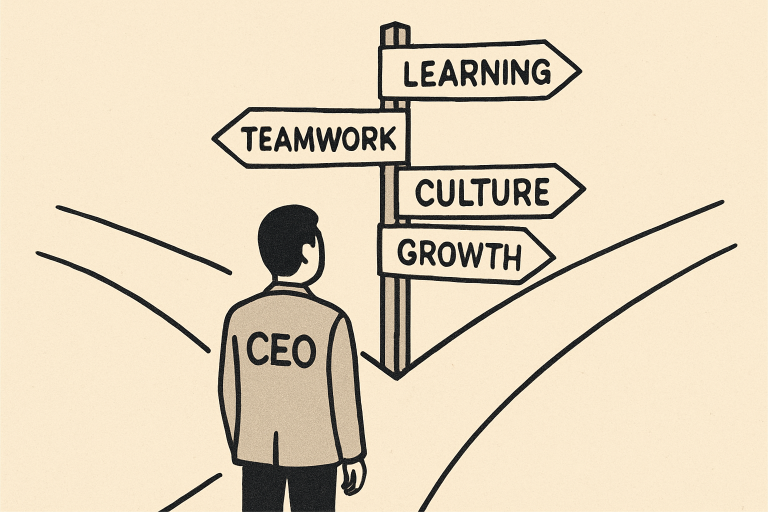The role of Chief Executive Officer is a multifaceted journey, shaped by the relentless pace of the modern business environment. Today’s CEOs face rapidly evolving challenges that demand adaptability, resilience, and a commitment to ongoing growth. Navigating this path is never a solitary endeavor; it draws on diverse skills, insights, and experiences gathered over time. Drawing lessons from industry leaders like Neil Henderson of the Shift Browser can shed light on the keys to thriving in a C-suite role.
As leaders step into the CEO chair, they quickly learn the vital importance of surrounding themselves with capable people, cultivating a cohesive vision, and making decisions under uncertainty. Every stage of the CEO journey offers new opportunities for growth, from harnessing the power of company culture to championing innovation through teamwork. With so much responsibility, CEOs must hone not only their business acumen, but also their self-awareness and empathy. Embracing these lessons can spell the difference between success and struggle.
The CEO role, at its core, is about driving the organization forward while protecting its values and mission. Foundational skills—like the ability to learn from mistakes, balance risk and reward, and maintain organizational focus—are often developed along the way, not learned in a classroom. By understanding the real-world experiences and actionable insights from leaders like those featured in the Shift interview, CEOs can equip themselves for the road ahead.
What follows are the most impactful lessons gathered from the journeys of seasoned CEOs, designed to help aspiring and current executives excel in a rapidly changing business world.
Embrace Continuous Learning
At the heart of every high-performing CEO’s journey is a commitment to lifelong learning. Markets, technologies, and customer expectations change constantly, making it imperative for leaders to actively seek new knowledge and perspectives. Whether it’s reading widely, engaging with industry peers, or enrolling in executive programs, successful CEOs make time to stay ahead of the curve. In a conversation with Tory Burch, she emphasizes that continuous learning fosters adaptability and innovation—core traits for modern leaders. Read more about Tory Burch’s insights on the importance of growth and curiosity.
Build a Strong Team
No CEO achieves greatness alone. The ability to attract, develop, and empower exceptional talent is perhaps the most crucial leadership skill. Strong teams bring together complementary skills, constructive debate, and creative problem-solving. CEOs who invest in people—from recruitment to professional development—set the foundation for organizational resilience and innovation. Leaders who foster collaboration often see their teams outperform even the highest individual contributors.
Prioritize Company Culture
The culture of an organization is more than a set of policies or perks; it’s the invisible force that shapes daily behavior and long-term outcomes. CEOs are the primary architects of company culture, and must lead by example. Transparent communication, inclusivity, and shared values drive not only engagement, but also high performance. A healthy workplace culture fuels retention, creativity, and adaptability in the face of change.
Develop Financial Acumen
While vision and charisma are important, effective financial management is what truly sustains organizations. CEOs must master budgeting, interpreting financial statements, risk evaluation, and investment strategies. Making informed decisions based on sound financial analysis ensures stability, confidence, and growth. These skills are integral to building trust with shareholders, employees, and customers alike. Case studies discussed by top executives underline how crucial financial stewardship is for long-term success.
Seek Mentorship
Even the most accomplished CEOs benefit from mentors who can offer objective advice, encouragement, and perspective. Whether through formal programs or informal relationships, mentorship accelerates growth, helps navigate crises, and provides a sounding board for transforming challenges into opportunities. Building a network of trusted advisors is an investment that pays dividends throughout a leader’s career.
Embrace Failure as a Learning Opportunity
Setbacks and failures are unavoidable parts of the CEO journey. The most successful leaders are those who reframe failures as critical learning moments. Analyzing what went wrong, seeking feedback, and applying those lessons to future decisions cultivates resilience and continuous improvement. This mindset encourages organizations to experiment, take risks, and ultimately, innovate.

Maintain Work-Life Balance
Burnout can erode even the most visionary leadership. CEOs must learn to balance ambitious professional goals with personal well-being. Prioritizing mental health, setting boundaries, and making time for family or hobbies enhances clarity, energy, and long-term effectiveness. Healthy leaders model sustainable practices for their entire organizations.
Plan for the Future
An outstanding CEO always has an eye on the horizon. Strategic planning, scenario analysis, and future-proofing the organization are ongoing processes. By setting clear milestones and fostering an agile culture, CEOs can ensure their organizations thrive amid uncertainty. The journey is not only about adapting, but also about proactively shaping what comes next.
Conclusion
In summary, excelling as a CEO means committing to growth in every facet—professionally and personally. By embracing continuous learning, uplifting others, nurturing a vibrant culture, maintaining financial sharpness, finding mentors, learning from failure, caring for well-being, and planning strategically, leaders can leave a legacy of positive impact and lasting success.








